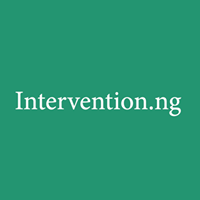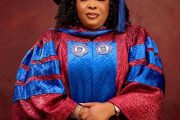No less than four chieftains of Nigeria’s ruling party, the All Progressives Congress, (APC) have taken on Goodluck Jonathan, the former president of Nigeria and the leader of the defeated People’s Democratic Party, (PDP) in the 2015 presidential election following his claims of achievements at the weekend. The APC chieftains have been joined in neutralising Jonathan’s celebration of his tenure by a moral cum ideological heavyweight, Alhaji Abdulkadir Balarabe Musa, the leader of a coalition of political parties. The attacks signpost the pattern of the struggle for power between the ruling APC and the opposition PDP against 2019 in terms of the key issues and how they will be framed.
Balarabe Musa, the most ideologically serious of all the critics of the former president, for example, said the former president showed competence in nothing unlike in the present administration even as he said there was no certainty that the present administration is doing better in the light of the parlous state of the Nigerian economy.
In anticipation of such sharp shooters, the former president had said at the last Saturday convention of the opposition PDP that his administration did well except what he called failing to completely plug the loopholes in fighting corruption. As it is, he probably wished he did not go into that because his critics are reliving the imagery of billions and billions that were stolen under him as have been fished out by the Economic and Financial Crimes Commission, (EFCC) since June 2015 and it seems it is not over yet.
The development is seen as hope rising for democracy because there are at least two vibrant parties to choose from by 2019 unlike when the PDP was politically so sick it was described as being in the intensive care unit. Intervention’s own analysis is that 2019 will be decided by the appeal of the presidential candidate of each of the two political parties. In this case, the APC and the PDP are in the same problem.
In the very unlikely situation that incumbent President Muhammadu Buhari will go for a second term, the APC, just like the PDP would have to look for a fresh candidate. If Buhari should step down for any reasons before his tenure expires in 2019, his deputy will succeed him. If that happens, then his deputy, Acting President Yemi Osinbajo, would customarily have the right of first refusal. If he accepts, he contests and faces the PDP in 2019. The assumption is that there are interests with the capacity to persuade all other stakeholders for this to work because the existing principle of rotation in Nigeria expects the north to be in power for two terms of four years each. It would be quite complicated this time aborting the north’s consecutive two terms, this having happened before with former President Umaru Yar’Adua’s sickness and death from power that truncated the rotation principle in 2010.
It presents an interesting dynamics of political power in Nigeria that although people appear to want to listen to an Osinbajo, the process could be complicated, including the fact that the party could lose the election to the PDP simply by insisting on Osinbajo candidature. Of course, this is not sacrosanct as it could always be negotiated.
PDP has a straight forward task of selecting a candidate that can wash it of the tars of its errors in 2010 to 2015, unite the people and set about remaking Nigeria in a fundamental manner. But where are the signs of such candidates that will not only eclipse the incumbent APC, especially if it is a cerebral Osinbajo who would have spent some time in power by then and done a few remarkable things that cannot be denied him.
What if Buhari himself is running for second term? A question for another day perhaps!




























